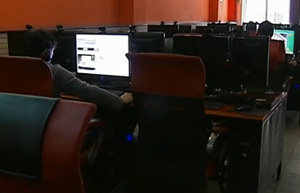Beijing, Shanghai announce detailed property curbs
Updated: 2013-04-01 10:09
(Xinhua)
|
||||||||
BEIJING - The municipal governments of Chinese capital Beijing and business hub Shanghai on Saturday spelled out detailed rules aimed at cooling the property market following the central government's fresh regulatory plan earlier this month.
Single adults with a permanent Beijing residence registration, who have not made purchases in the city before, are allowed to buy only one apartment, according to the announcement.
Shanghai said banks will be banned from giving loans to local residents who are buying a third apartment or more, according to a government announcement.
Meanwhile, the two cities will raise down payments for second-home buyers.
The two mega-cities both vow to strictly implement the 20-percent tax on capital gains from property sales.
Beijing said the tax will be exempt if the property is the seller's only one and they have owned it for five years or more. The Shanghai announcement did not mention similar policy.
Other rules include ensuring land supplies for residential housing, enhancing regulations over property sales, and building a long-term mechanism for the housing market.
Beijing said it will complete construction of 70,000 units of affordable apartments in 2013. Shanghai targets completion of construction of 10,000 units of such apartments this year.
Shanghai said besides enforcing the capital gains tax, it would apply greater scrutiny to borrowers who come from other cities, or are foreign or divorced.
Beijing said those who provide fabricated materials to buy apartments will not be registered for property ownership and will be banned from buying apartments in Beijing within 5 years.
The rules came after the central government rolled out a plan on March 1 to tighten control over the property market amid expectations of rising housing prices.
Among the measures, the central government announced a new capital gains tax of 20 percent on used home transactions, a move that has triggered widespread panic among both buyers and sellers. The new tax replaces the previous transaction tax of 1 to 2 percent of the final sale price.
The property market, particularly the used house sector, has since seen a large number of transactions amid worries that the new tax will push housing prices even higher.
"The curbing policies are designed to optimize the allocation of housing resources," said Chen Zhiwu, secretary general of the Beijing Real Estate Association.
The target of policy regulation is to make the housing return to its nature of residence, instead of investment object, Chen said.
The impact of buying control and differentiated credit policy will be limited but it will help stabilize the market expectation, said Zhang Dawei, chief market analyst with Beijing-based Zhongyuan Real Estate.
Home buyers are eager to purchase houses because they expect a rising real estate price. The new rules will cool the property market, and help bring down the price to a rational one, Zhang said.
The rules caught the public's eye as soon as it came out.
Li Yu, a 27-year-old white collar, said most single adults who have a proper job cannot afford to buy a house in Beijing.
The average price of Beijing's used house reached 25,475 yuan ($4,101) per square meter by the first half of January, according to a survey done by Bacic5j5j Group.
Like many of her colleagues, Li rushed to buy a house this month before property curb measures were detailed.
On March 22, She bought a 57-square-meter house near Beijing's Second Ring Road for 2.15 million yuan. "Even the tax was as high as 100,000 yuan," said Li.
"I don't think the rules can impose any restrictions on those who have two or more houses. And those who in need of a house still cannot afford one," she said.
Li Wenjie, director of Beijing Real Estate Agent Association, said the rules may be effective in the short term, but increasing land supply and collecting property tax from house owners can yield better result.
"The purchase limit policy will not last forever. It should be replaced by long-term effective measures," said economist Ma Guangyuan.
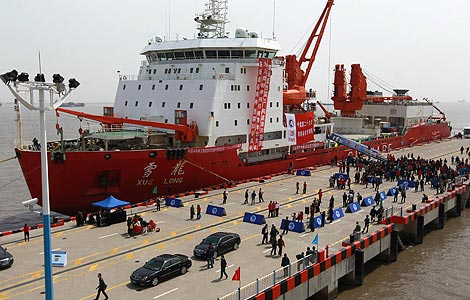
 China's 'Xuelong' returns from Antarctic trip
China's 'Xuelong' returns from Antarctic trip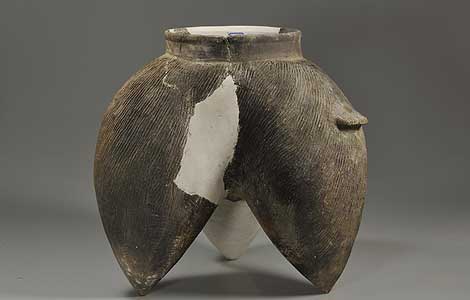
 China reports top 10 archaeological finds in 2012
China reports top 10 archaeological finds in 2012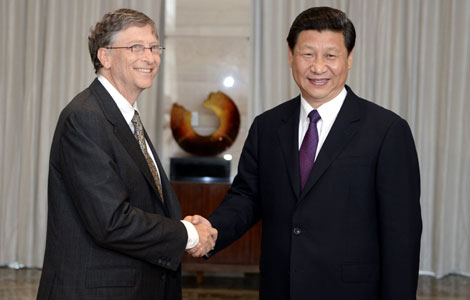
 Xi promises a fair market
Xi promises a fair market
 Foreigners on tai chi vacations in China
Foreigners on tai chi vacations in China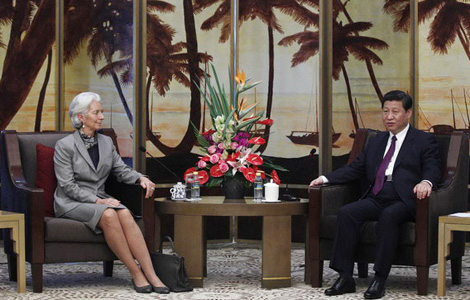
 China vows further cooperation with IMF
China vows further cooperation with IMF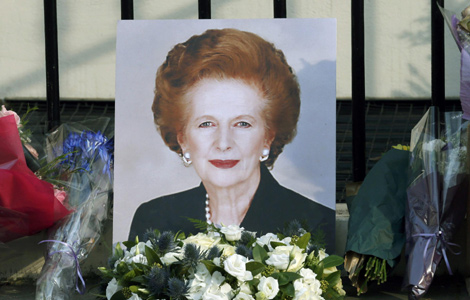
 UK mourns death of 'Iron Lady' Thatcher
UK mourns death of 'Iron Lady' Thatcher
 Li: Cooperation with Cambodia should rise
Li: Cooperation with Cambodia should rise
 Fighting the H7N9 nightmare
Fighting the H7N9 nightmare
Most Viewed
Editor's Picks

|

|

|
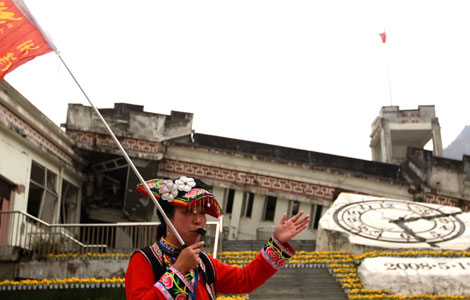
|

|

|
Today's Top News
Confucius schools prep for new sites
Xi promises a fair market
'Iron Lady' Thatcher mourned
Development at mass grave sparks opposition
4 suspected H7N9 patients test negative
Yuan to lead super rice strain project
No H7N9 epidemic among poultry: expert
DPRK proposes evacuation for foreigners in ROK
US Weekly

|

|

